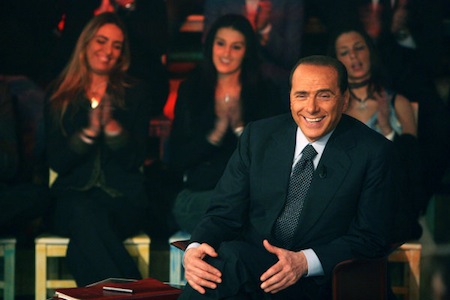
So right on time, the Russian government has engineered a conviction of Alexei Navalny, the outspoken critic of Russian president Vladimir Putin.
His conviction stems from a truly bizarre accusation that he embezzled around $500,000 out of a timber company in Kirov, an industrial town hundred of miles northeast of Moscow, and all signs indicate that the conviction is politically motivated to remove Navalny as a Putin critic whose following is growing — and his conviction is likely to only enhance his attraction.
Navalny now faces five years in Russian prison far away from Moscow, where Navalny was running to contest the mayoral election on September 8, an election that’s now even more likely to be won by incumbent Sergei Sobyanin, a Putin ally who took power after former mayor Yuri Luzhkov was pushed out of office by then-president Dmitry Medvedev in 2010. The election’s sudden timing effectively prohibited prominent billionaire Mikhail Prokhorov from arranging his complex international finances in order to contest the race, leaving Navalny as the leading prominent challenger.
Prokhorov, who owns the New Jersey Nets, and who waged a presidential campaign in March 2012, has shown that his opposition is a much more delicate dance with the Kremlin than Navalny, who led full-throated protests in Moscow protesting the presidential vote and credible allegations of fraud in the December 2011 elections to the ду́ма (Duma), Russia’s lower legislative chamber. In contrast to Navalny’s sledgehammer opposition, Prokhorov has been more hesitant to cross Putin and Putin’s allies, and it was even speculated last year that Prokhorov’s opposition was entirely manufactured by Putin’s allies. That’s probably not true — after all, Prokhorov, as a good businessman, has much more to lose from a full-throated attack on the Kremlin than Navalny — and he’s forged links with other credible opposition figures like former Russian finance minister Alexei Kudrin.
Navalny had become such a radioactive political figure in recent days that Prokhorov even refused to back Navalny in the Moscow mayoral race, instead endorsing Sergey Troitsky, the lead singer of a Russian heavy metal band, ‘Corrossive Metal,’ and who is most well-known by his stage name, Pauk, which means ‘spider’ in Russian.
But Navalny’s conviction today means that he’s likely to leapfrog the tentative Prokhorov and other anti-Putin activists as the central figure of the Russian opposition. Russian prisons are notoriously brutal places, rife with violence and diseases, including drug-resistant tuberculosis, and Navalny faces some amount of peril in the years ahead. Navalny’s conviction is already drawing international condemnation, and Putin will now have succeeded in elevating a one-time gadfly into a political figure empowered with the authenticity of someone who’s willing to face down Russia’s horrible prisons as the price of speaking out against Putin.
Navalny tweeted and blogged to his supporters, encouraging them to keep up his fight against Putin’s dominant Еди́ная Росси́я (United Russia) party, which he famously referred to as a ‘party of crooks and thieves.’
After the verdict, Navalny tweeted: “So that’s it. Don’t get bored without me. Most importantly, don’t sit around doing nothing. The toad won’t get off the oil pipe by itself.”
In his LiveJournal blog on Wednesday Navalny said: “The current authorities are not a big, healthy fish, but rather a bloated fish or Latin American toad, which puffs itself up when it sees danger, with the help of television.”
Utlimately, Navalny’s trial and conviction are another indication that the Putin administration intends on being as fully authoritarian as it needs to be to hold onto power, in the same way that prominent opposition leader and former prime minister Yulia Tymoshenko remained — and still remains — in prison over politically motivated charges in neighboring Ukraine during last October’s parliamentary elections.
But Putin, in attempting to silence a 21st century critic with ham-fisted 20th century methods, risks that his strategy will backfire by bringing Navalny even more notoriety and credibility. Just witness the international attention that the politically motivated trials against oligarch Mikhail Khodorkovsky commanded, the sudden 2006 murder of prominent anti-Putin journalist Anna Politkovskaya, or even the suspicions of foul play in the apparent suicide earlier this year of exiled oligarch Boris Berezovsky in London.
Continue reading Opposition critic Navalny’s conviction, in Putin’s Russia, is a badge of authenticity →
![]()


